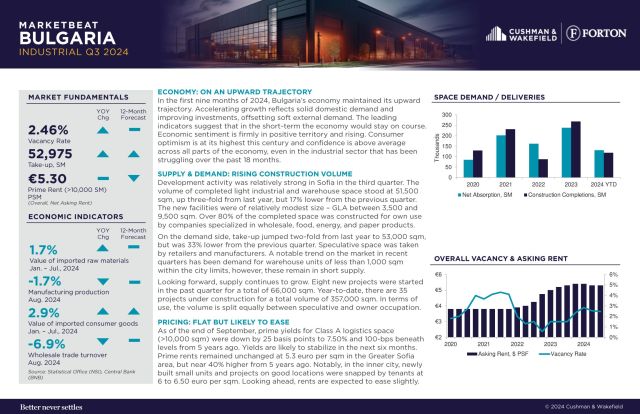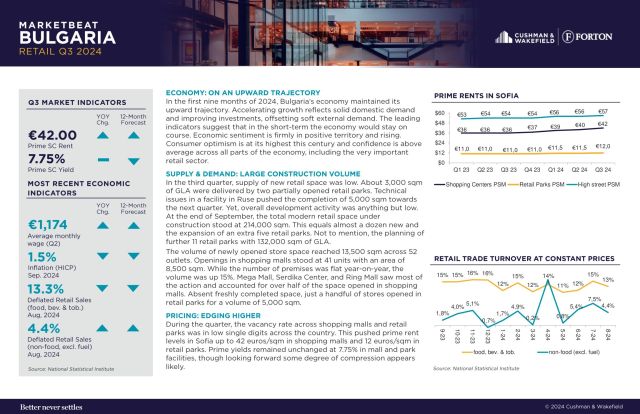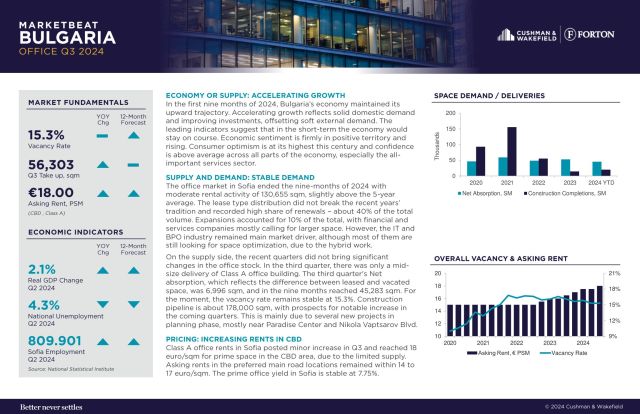Two out of three new tenants are looking for flexible office space
18.04.2022
Two out of three new tenants in Sofia are interested in flexible office solutions, according to data from commercial real estate advisory company Cushman & Wakefield Forton. More and more companies entering the market or expanding want their leased space to include a coworking section to secure future growth.
As the hybrid model, which involves working from different locations, becomes more prevalent, demand for flexible office solutions from businesses is expected to grow.”Office markets globally have gone through major transformations in the face of the pandemic. One of these is the new position of shared office space. They have evolved from alternative workspaces for freelancers and start-ups to an essential element in the mix of office buildings themselves. My prediction is that co-working spaces will become an increasingly integral part of large business centers,” said Yordan Krastev, Office Space Manager at Cushman & Wakefield Forton.
Cushman & Wakefield Forton statistics show that as of the beginning of 2022, 45 580 sq.m. of shared workspace are operating in Sofia. Another 2,500 sqm with 250 workspaces are expected to be added in April as MyFlex project located in Megapark opens doors. The investor is Lion’s Head Investments and the operator of the space will be Cushman & Wakefield Forton.
About 75% of the available space at the beginning of the year is located outside the central areas of Sofia – in the office zones along the major boulevards and in the suburbs. It is not uncommon for shared workspace operators to become tenants in large business centres in these locations, or for the office buildings themselves to integrate such solutions into their space mix.
“For them [Landlords], this has great added value because it allows them to be flexible when tenants want to expand. It also allows them to attract smaller teams of professionals who don’t have the time or resources to equip a standalone office at this stage, but see prospects for rapid growth. In addition, the tenants themselves are increasingly looking for an environment and a comprehensive service, not just square meters,” said Krasimir Petrov, Asset and Property Manager at Cushman & Wakefield Forton.
Data from shared workspace management company OfficeRnD also shows that 84% of the space offered by their clients is serviced office (private offices). Of the total availability, 12% are reserved workspaces (dedicated desk) and 4% are free to use (hot desk).
In terms of occupancy, the company commented that serviced offices are preferred by tenants on the main boulevards, while individual workspaces are more in demand in central areas. The indicator is measured based on the number of occupied working days during the month. According to it, serviced offices on the outskirts of the city and along the major boulevards enjoy 73% and 63% occupancy in the month, respectively, while those in the city centre and broad city centre enjoy 48% and 30% occupancy. Conversely, individual workplaces hold the highest occupancy in central city areas.
This data corresponds with Cushman & Wakefield Forton’s observation that shared workspaces outside of downtown are primarily sought by tech companies. Their demand is typically for larger teams, with room for expansion and a requirement for more parking, which downtown co-working operators cannot provide. Conversely, central areas are preferred by small consultancies, marketing and advertising agencies, and freelancers.
The segmentation of the shared office space market is a global trend as this market enters a more mature stage and customer needs become more diverse. The response to this trend is the establishment of the rising proworking model, which offers all the standard services and social experience of coworking space, but in a more traditional high-end office environment.
Tenants get a fully-equipped office, meeting spaces, along with a full range of services, while the focus remains on ensuring a comfortable office environment and low-noise levels. Some observers describe proworking spaces as a more corporate version of flexible workspaces. For this reason, this model is mainly entering office buildings as it fits better into the general environment.
RELATED INSIGHTS
CAN’T FIND WHAT YOU’RE LOOKING FOR?
Get in touch with one of our professionals.




